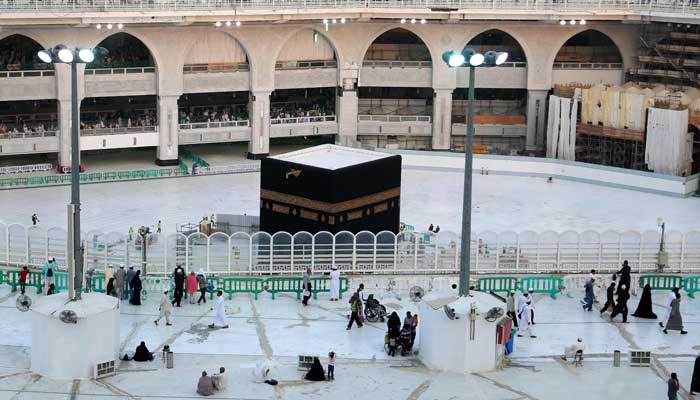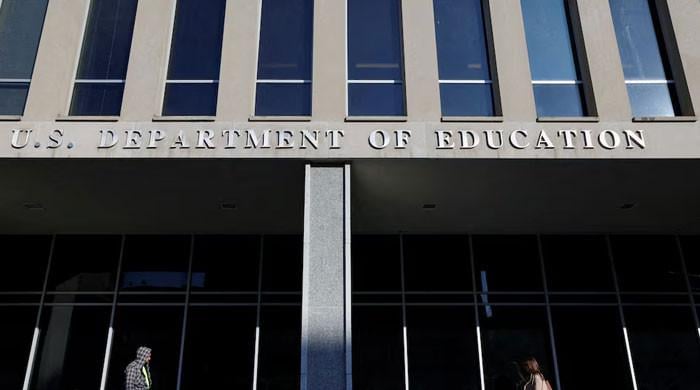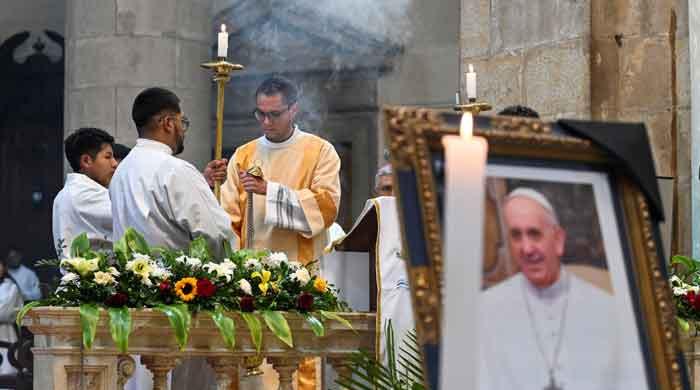Saudi Arabia re-opens Mataf in Makka for non-Umrah performers
Saudi Arabia had halted the Umrah pilgrimage for its own citizens and residents on Wednesday
March 07, 2020

Saudi Arabia on Saturday announced the opening of the Mataf (area for circumambulation around the Holy Kaaba) for non-Umrah performers from today.
According to the Saudi Press Agency (SPA), the General President of the Grand Mosque and Prophet's Mosque Affairs Sheikh Dr Abdurrahman bin Abdulaziz Al Sudais said the decision came following a royal order by the Custodian of the Two Holy Mosques King Salman bin Abdulaziz Al Saud.
He added that there was a "plan drawn up for this purpose."
This decision to open the Mataf area follows a major cleaning and sterilisation operation inside and outside the Grand Mosque.
Dr al Sudais also stressed the need to adhere to precautionary procedures and cooperate with Grand Mosque workers to maintain public safety.
Read also: Saudi Arabia empties Islam's holiest site for sterilisation over coronavirus fears
Saudi Arabia on Thursday emptied Islam's holiest site for sterilisation over fears of the new coronavirus, an unprecedented move after the kingdom suspended the year-round Umrah pilgrimage.
State television relayed stunning images of an empty white-tiled area surrounding the Kaaba which is usually packed with tens of thousands of pilgrims.
The move was a "temporary preventive measure" but the upper floors of the Grand Mosque were still open for prayers, a Saudi official told AFP.
On Wednesday, the Kingdom halted the Umrah pilgrimage for its own citizens and residents.
The move came after authorities last week suspended visas for the Umrah and barred citizens from the six-nation Gulf Cooperation Council from entering Mecca and Medina.
The Umrah, which refers to the Islamic pilgrimage to Mecca can be undertaken at any time of year, attracts millions of Muslims from across the globe annually.
Read also: Saudi Arabia suspends Umrah for locals amid coronavirus fears
The decision to suspend the Umrah comes ahead of the holy fasting month of Ramadan starting in late April, which is a favoured period for pilgrimage.
It is unclear how the coronavirus will affect Hajj, due to start in late July.
Some 2.5 million faithful travelled to Saudi Arabia from across the world in 2019 to take part in the Hajj, which is one of the five pillars of Islam as Muslim obligations are known.
The event is a massive logistical challenge for Saudi authorities, with colossal crowds cramming into relatively small holy sites, making attendees vulnerable to contagion.












